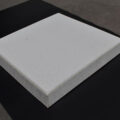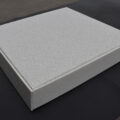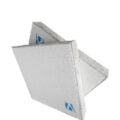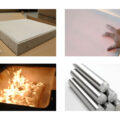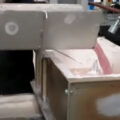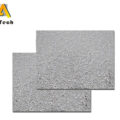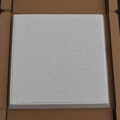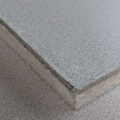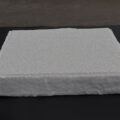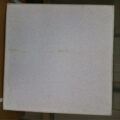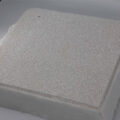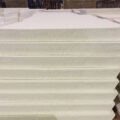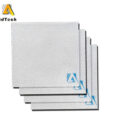The use of ceramic foam filters for molten metal filtration has great advantages in reducing production costs and improving product quality.
In addition, ceramic foam filters are used for molten metal aluminum filtration. The CFF filtration equipment is an ordinary steel shell lined with prefabricated refractory brick pads. It is placed horizontally in the filter box. Therefore, there is no need to make major changes to the existing casting system, and only a small space is required. Moreover, the molten metal filter can effectively filter all metals in a melting stage, and can be easily removed or replaced after use.
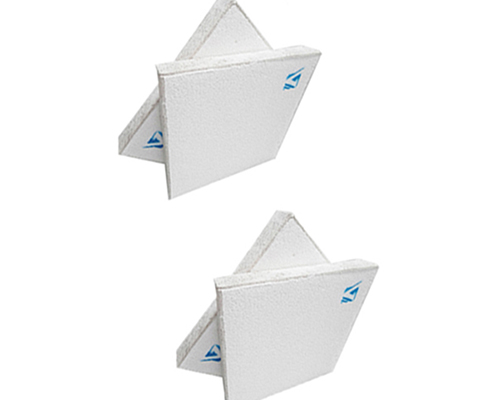
Ceramic foam filter with gasket help seat the filter in the filter box and ensure no metal bypasses the filter. There are different types of gasket available, fibre gasket, expandable gasket. You also can choose Alumina Ceramic Foam Filters without the gasket.
Ceramic foam filter is a new type of ceramic filter material developed in recent years, it is widely used in molten metal filtration. It is made of polyurethane foam, dried, and sintered. The porosity is as high as 80%~90%. The ceramic foam filter has a mesh structure and has a certain strength. It can withstand the pressure difference of the metal liquid surface and the impact of the metal flow, but it is brittle and fragile. Due to the precise structure, uniform quality, and large surface area of the material, the filtering effect is excellent.
As a professional ceramic foam filter manufacturer, AdTech Metallurgical Materials Co., Ltd. has been committed to the research, development, production, and marketing of bonded ceramic foam filters (CFF) for aluminum alloy casting. AdTech’s ceramic filter technology has been widely recognized by the market and can be used to produce a variety of aluminum alloy products.
Advantages of Ceramic Foam Filters Molten Metal Filtration
- Improve extrusion efficiency
- Extend the life of the mold and reduce the number of mold repairs.
- Significantly improve the surface quality of aluminum profiles.

